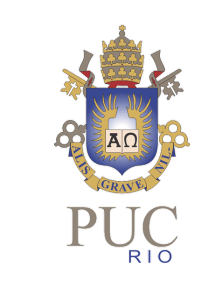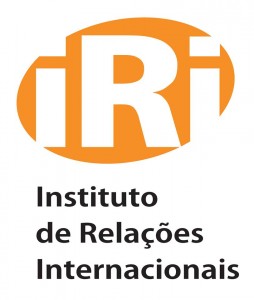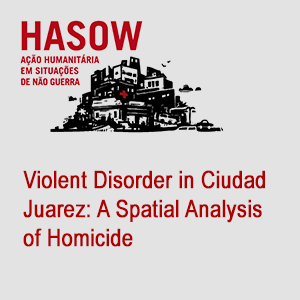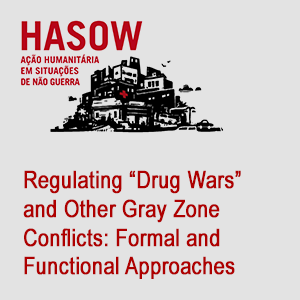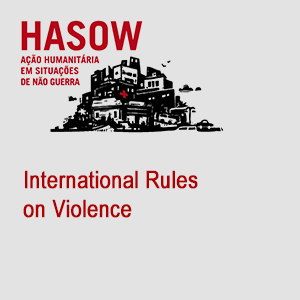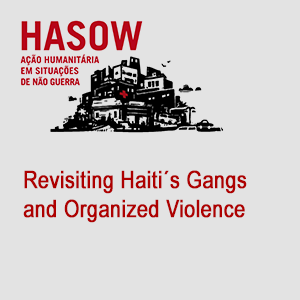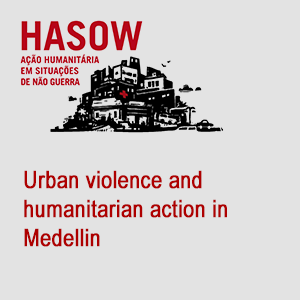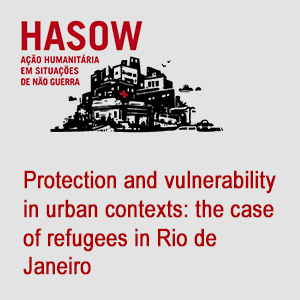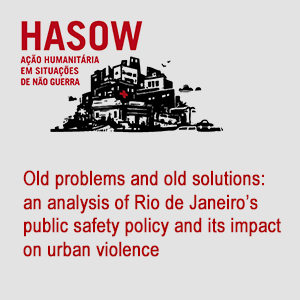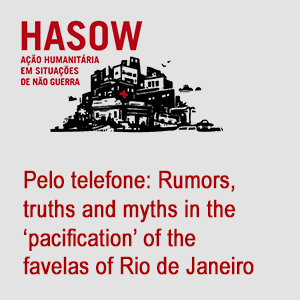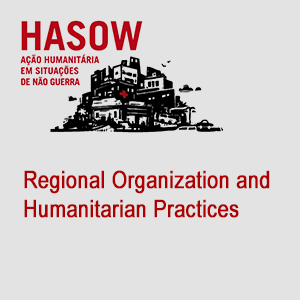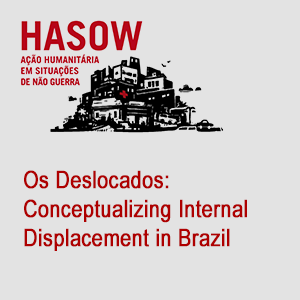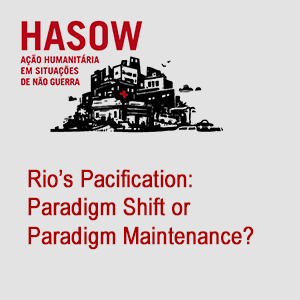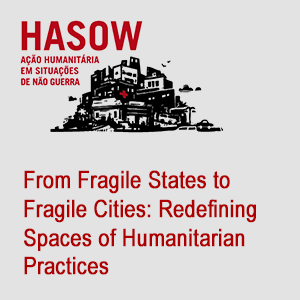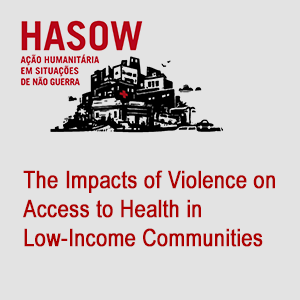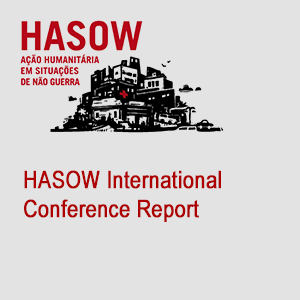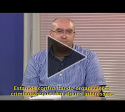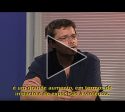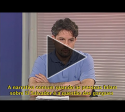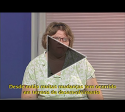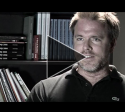
Based at the Institute of International Relations of PUC-Rio and in partnership with partners across Latin America and the Caribbean, HASOW features activities from 2011 and 2014 including seminars, conferences and ongoing field research which considered a number of ways in which humanitarian interventions are unfolding in violent cities such as Ciudad Juarez, Medellin, Port-au-Prince and Rio de Janeiro.
> About the project
The humanitarian sector is confronted by a period of decreasing warfare and increasing fragility. Since the beginning of the 1990s there has been an unprecedented decline in armed conflict. Notwithstanding the wider decline in armed conflict, the military, relief and development sectors are confronting what many describe as new forms of “fragility” or “ungoverned spaces”.
The preoccupation with “fragile” states and cities, along with growing investment in so-called stabilization and reconstruction, reflects a set of priorities and assumptions of predominantly western donor and affected governments. They also demonstrate that while security and development establishments are shrewdly adapting, humanitarian agencies are slower on the up-take. This is partly because such environments also include an array of comparatively “new” settings for the humanitarian sector, including post-conflict settings, urban spaces and what the ICRC describes as “situations other than war”.
Cities and inner city neighbourhoods are now of greater international importance, including to the humanitarian sector. Although the application of traditional “conflict” analysis and approaches may offer important insights and perspectives, they are insufficient – and the humanitarian sector is finding that in these environments – especially contexts marked by high levels of urban violence – a business as usual approach may not be appropriate. Likewise, humanitarian principles of neutrality, impartiality and independence may have comparatively little purchase.
To tackle this new challenge, HASOW advances five core pillars:
- a review of the so-called “tipping points” or thresholds at which organized violence can be considered armed conflict;
- the international humanitarian legal implications of relief and development interventions in so called other situations of violence;
- the organizational dynamics of humanitarian action in Ciudad Juarez, Mexico, Port-au-Prince and Rio de Janeiro;
- the outcomes and impacts of humanitarian action in urban settings, particularly fragile cities; and
- the transfer of so-called “social technologies” in the humanitarian sector across setting.
> Researchers
Coordinators
Robert Muggah
Paulo Esteves
Senior Researchers
Carolina Moulin
João Pontes Nogueira
Mônica Herz
Research Assistants
Jana Tabak
Renata de Figueiredo Summa
Aline Fernandes Vasconcelos de Abreu
Interns
Felippe De Rosa
Ana Paula Pellegrino
Isadora de Andrade
Giulia Bruno
> Events
Workshop “Urban Violence: Patterns and Trends”
(8 September 2011 – BRICS Policy Center, Rio de Janeiro)
Lecture “Regulating Drug Wars: International Rules on Violence”
(19 October 2012 – BRICS Policy Center, Rio de Janeiro)
> Agenda
First Hasow International Conference “The Politics of Protection and the Future of Humanitarian Practices”
(25 -26 March 2013 – PUC-Rio)
International Workshop: Humanitarian Protection and Contemporary Forms of Violence
(30 April 2014 – PUC-Rio)
> Partners
> Op-Eds
5 March, 2012: “In Haiti, Violence Amid the Rubble”. Robert Muggah and Athena Kolbe. The Global Mail.
26 March, 2012: Disaggregating Lethal Armed Violence – Professor Robert Muggah on Reinventing Peace blog of the World Peace Foundation.
26 March, 2012: Rethinking the Intensity and Organization of Violence in Latin America and the Caribbean – Professor Robert Muggah on Reinventing Peace blog of the World Peace Foundation.
13 June, 2012: “The Future of Humanitarian Action to be Decided in Medellín” – Professor Robert Muggah and Claudia Navas Caputo on OpenDemocracy and El Huffington Post.
13 June, 2012: “The Future of Humanitarian Action to be Decided in Medellín” – Professor Robert Muggah and Claudia Navas Caputo on OpenDemocracy and El Huffington Post.
20 November, 2012: “Chronicling an Everyday Rape in Haiti” – Professor Robert Muggah and Athena Kolbe on the Huffington Post.
24 November, 2012: “Killing them Softly in Medellín” – Professor Robert Muggah on Open Democracy.
8 December, 2012: “Haiti’s Silenced Victims” – Professor Robert Muggah and Athena Kolbe for the New York Times.
4 February, 2013: “Es Hora de Hacer Frente al Problema de la Violencia en America Latina y el Caribe”. Robert Muggah and Sam Doe. Huffington Post.
4 February, 2013: “Time to Deal with the Epidemic of Violence in Latin America and the Caribbean” – Professor Robert Muggah and Sam Doe on the Global Observatory and Huffington Post.
14 February, 2013: “Dealing with Latin America’s Violence Problem”. Robert Muggah and Sam Doe. Huffington Post.
14 February, 2013: “Dealing with Latin America’s Violence Problem”. Robert Muggah and Sam Doe. Huffington Post.
4 June, 2013: “Haiti’s Gangs Could be a Force for Good“, Professor Robert Muggah and Athena Kolbe in the Ottawa Citizen.
12 June, 2013: “Urban Violence and Humanitarian Action in Medellín” – Claudia Navas Caputo and Professor Robert Muggah for ReliefWeb.
18 June, 2013: “Quem está por trás da Violência em Haiti“, Professor Robert Muggah and Athena Kolbe in O Globo.
22 June, 2013: “El Futuro de la Acción Humanitaira Podría Decidirse en Medellin” – Professor Robert Muggah and Claudia Navas Caputo in the Huffington Post.
12 August, 2013: “Situação Delicada” – Professor Robert Muggah and Ilona Szabó on O Globo.
13 August, 2013: “Beyond Pacification in Rio de Janeiro” – Professor Robert Muggah on The World Post.
15 August, 2013: “Una Guerra con Otra Nombre” – Professor Robert Muggah and Steve Dudley in the Huffington Post.
18 August, 2013: “Una Guerra con Otro Nombre” – Professor Robert Muggah and Steve Dudley in the Excelsior.
18 August, 2013: “Una Guerra con Otro Nombre” – Professor Robert Muggah and Steve Dudley in the Excelsior.
28 August, 2013: “The Most Dangerous City in the World is Not Where You Think It Is” – Professor Robert Muggah and Steven Dudley in the Atlantic.
24 Octobert, 2013: “Mega Cities Rising” – Professor Robert Muggah in ISN.
24 Octobert, 2013: “Mega Cities Rising” – Professor Robert Muggah in ISN.
28 March, 2014: “Para além da pacificação no Rio” – Professor Robert Muggah in Estado.
March, 2014: “Explaining Violence and Social Disorganization in Ciudad Juarez” – Professor Robert Muggah’s and Carlos Vilalta’s contribution to F3, based on a HASOW Working Paper.
March, 2014: “Explaining Violence and Social Disorganization in Ciudad Juarez” – Professor Robert Muggah’s and Carlos Vilalta’s contribution to F3, based on a HASOW Working Paper.
15 April, 2014: “Fear and Backsliding in Rio” – Robert Muggah and Ilona Szabo de Carvalho in the New York Times.
24 April, 2014: “Future Landscapes of Conflict and Violence” – Professor Robert Muggah in Development Progress, ODI.
24 April, 2014: “Future Landscapes of Conflict and Violence” – Professor Robert Muggah on the Development Progress blog of the Overseas Development Institute.
June, 2014: “Brazil’s Crime Crisis is Worsening” – Professor Robert Muggah and Ilona Szabó in the Miami Herald.
June, 2014: “El Laboratorio Brasileño de Innovación en la Reducción de la Violencia Urbana” – Professor Robert Muggah in Perspectiva.
18 August, 2014: “Central American Blow-Back” – Professor Robert Muggah on the International Relations and Security Network.
Videos
HASOW Series – interview with Carlos Vilalta
13 de April de 2016HASOW Series – interview with Javier Navarro
13 de April de 2016HASOW Series – interview with Steve Vigil
13 de April de 2016HASOW Series – Interview with Athena Kolbe
13 de April de 2016



